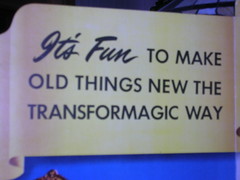What a non-story, a complete non-scandal, this business about contractor Christine Axsmith being fired over her blogging activities at the CIA.Readers familiar with my stance on free-speech issues might be surprised by my emphatic stance on this one. Why not go to bat for the rights of this woman?
Because it's not a free speech issue. She was on company time, using a company communications organ intended to share work-related information, and she wasn't even an employee of The Company. Nor was she a consultant or advisor on policy, or even an analyst, but rather a computer engineer charged with software "performance and stress testing."
She was a contractor, a strictly "at-the-pleasure-of" worker at the CIA, and not a very savvy one, at that, apparently. Whatever she may have been thinking when she decided to put in her two cents, at a client site, using a client's property, on a topic that had absolutely nothing to do with her contract job, she wasn't thinking clearly. Her judgment left a lot to be desired, and it's absolutely reasonable for both the CIA and BAE, the company who was providing her services to the CIA, to be uncomfortable with her continuing in her role. Frankly, it wouldn't bother me if the tipping point had been her "most popular post -- bad food in the CIA cafeteria," rather than one related to the Geneva Convention(s).
There was a period of time when I spent a lot of time as a consultant--a contract worker--at client sites (and virtually), both as a direct contractor or as a sub hired on a project basis to work as part of a team managed by a major corporation working for various of its clients. At various times, I worked as a documenter, a training developer, a training materials editor, a user procedure tester, and so forth. In addition, for a period of time we also had a couple dozen or so subcontractors going through our small company doing similar, or even more, technical work.
So I'm not just talking through my hat when I say that I have a little insight into what it's like to be a contractor, what both client and customer expectations are, what the boundaries are, and some of the big no-no's.
Unlike some, perhaps, I actually can envision circumstances under which Axsmith might --
might--have had access to sensitive reports in connection with putting together or conducting training (which, by the way, still wouldn't make commenting on them part of her job). But if she were in that sort of circumstance, that's all the more reason that she should have known better--even if she, as an apparent employee of BAE, as opposed to a sub--didn't have a contract an inch thick specifying all the ways in which she was to toe the line.
And no, it doesn't make a difference that it was a blog internal to the client. And no, I still don't think it would be a free-speech issue if she'd written the same information on a personal blog on her own time.**** [See update.] Presumably, she, or BAE as her employer, have extensive confidentiality agreements by which they must abide, and which she would have violated under that scenario. I'm not presuming much, either, based on the contracts that I have signed over time and, in some cases or ways, by which I am still bound, years later.
Christine Axsmith made a not-so-uncommon, but easily fatal, contractor error of thinking that she was really "an insider," someone who belonged, who could say or do whatever she wanted, rather than the "at the pleasure of" cog she truly was, and it affected her judgment. That sort of contractor poses a real risk to the company providing workers at a client site. And no company that cares about its reputation can afford to be tolerant of that kind of risk.
(I don't mean "cog" to dehumanize her, by the way: Remember, I've been a cog, too, and as recently as a little over a year ago. It simply is a reflection of the reality of the position, in many if not most circumstances. Almost every consultant/contractor I've ever known has understood this. Those that haven't ... well, let's just say that more often than not, they've ended up in Axsmith's position.)
I understand why WaPo decided to go with this story: The CIA, elements of the Geneva Convention, references to waterboarding, top-secret blogging, interrogation reports, free-speech, a firing and so forth made it too good to pass up. Hell, as an editor or reporter, I'd most likely have gone with it, too. (Though I hope I'd have had more of clue as to the role of a contractor and done a better job of providing a more complete picture of relevant issues.)
But there's still no real beef here: A contractor got too full of herself, made a stupid decision (actually, more than one, but it took a while to catch up with her), and violated some basic Contractor/Consultant 101 precepts. She's a martyr to no cause and was betrayed by herself.
However, I'll bet she's already got a lawyer or lawyers telling her otherwise... .
***Clarification update: ***Hmmm. I see that as I've written this, I'm implying that there would be problem with Axsmith having expressed her stance on waterboarding, in the abstract, on a personal blog. Of course, there wouldn't be. I was thinking more specifically of the references to reading classified interrogation transcripts and commenting on whether European lives were saved based on that, or generally blogging about the client worksite, information gleaned there, etc. etc.






